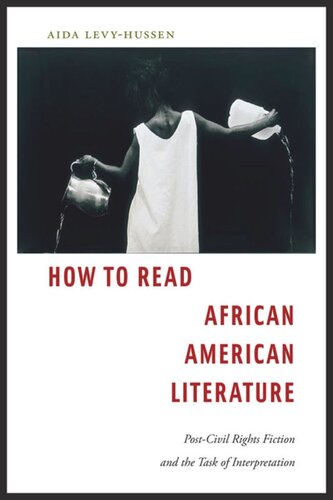

Most ebook files are in PDF format, so you can easily read them using various software such as Foxit Reader or directly on the Google Chrome browser.
Some ebook files are released by publishers in other formats such as .awz, .mobi, .epub, .fb2, etc. You may need to install specific software to read these formats on mobile/PC, such as Calibre.
Please read the tutorial at this link: https://ebookbell.com/faq
We offer FREE conversion to the popular formats you request; however, this may take some time. Therefore, right after payment, please email us, and we will try to provide the service as quickly as possible.
For some exceptional file formats or broken links (if any), please refrain from opening any disputes. Instead, email us first, and we will try to assist within a maximum of 6 hours.
EbookBell Team

4.1
20 reviewsHow to Read African American Literature offers a series of provocations to unsettle the predominant assumptions readers make when encountering post-Civil Rights black fiction. Foregrounding the large body of literature and criticism that grapples with legacies of the slave past, Aida Levy-Hussen’s argument develops on two levels: as a textual analysis of black historical fiction, and as a critical examination of the reading practices that characterize the scholarship of our time.
Drawing on psychoanalysis, memory studies, and feminist and queer theory, Levy-Hussen examines how works by Toni Morrison, David Bradley, Octavia Butler, Charles Johnson, and others represent and mediate social injury and collective grief. In the criticism that surrounds these novels, she identifies two major interpretive approaches: “therapeutic reading” (premised on the assurance that literary confrontations with historical trauma will enable psychic healing in the present), and “prohibitive reading” (anchored in the belief that fictions of returning to the past are dangerous and to be avoided). Levy-Hussen argues that these norms have become overly restrictive, standing in the way of a more supple method of interpretation that recognizes and attends to the indirect, unexpected, inconsistent, and opaque workings of historical fantasy and desire. Moving beyond the question of whether literature must heal or abandon historical wounds, Levy-Hussen proposes new ways to read African American literature now.